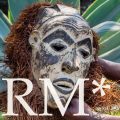In an interview in The Art Newspaper, Isabel von Klitzing, provenance researcher specialised in Nazi-looted art, discusses the research and restitution of colonial-era African artefacts with the Dakar-based art historian El Hadji Malick Ndiaye.
He is a scholar at the Institut Fondamental d’Afrique Noire Cheikh Anta Diop and curator of the institute’s Théodore Monod Museum of African Art.
Ndiaye explains the vital need for African perspectives in the restitution debate, how cultural heritage can help foster relations between African regions and whether researchers of colonial objects can learn from best practices in the field of Nazi-looted art.
‘The African perspective has historically never played the role it would merit and therefore needs to be strengthened. European stakeholders are often talking about problems African countries are facing but this is not the point and has to be avoided.
‘The emphasis has to be on the debate between Europeans and Africans. African countries are asking for the return of their objects and at the same time some European countries are trying to put one African country against another.
‘This is not acceptable. African countries need to decide themselves how to conduct their regional relationships without any external influence.’
Question: The Institut Fondamental d’Afrique Noire Cheikh Anta Diop in Dakar holds an important archive for the colonial history of Mauritania, Senegal, Mali, Guinea, Ivory Coast, Burkina Faso, Benin and Niger. Could provenance research into the objects that were taken from these countries in the colonial period lead to inter-African exchange and potentially return?
‘Wherever these artefacts are located in Africa today, they can allow African countries to have a cross-border exchange about their heritage.’


